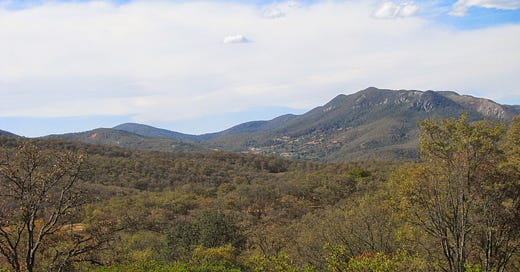Crossing the Border and Landing in Port Jervis
A Port Jervis resident tells of his trek from Honduras
Two years ago a Port Jervis resident challenged me to ask his Ball St. neighbors whether they knew who their city Common Council representative was. He bet that they did not. On that summer day, many people were outside, so I strolled down the street and talked to people.
A family chatting on their porch said they only knew who the mayor was because he was their daughter’s social studies teacher. A young man riding a bike admitted he didn’t know. An elderly man sitting on his porch couldn’t hear well but took the opportunity of having someone’s attention to tell an off-color joke.
Then I asked a man walking down the sidewalk.
“I look more at being on top of my own life,” he said.
Asked about the source of his accent, he said, “I’ve been here seven years from Honduras.”
“How did you end up here?” I asked.
“I walked,” he said.
“How many miles?”
“Many. I crossed El Salvador, Guatemala and Mexico.”
He was 18 when he left Honduras, wanting to “create a better future,” Yimmy Argenal said. He walked with people he met along the way.
“There’s no future in Honduras no matter how hard you work. You have to save everything you make in a week to buy clothes for a newborn,” he said. “I was selling those on the street. I saw how hard people worked to buy it. I didn’t want that.”
On the street, he also sold potatoes, onions, tomatoes, lighters and matches.
“I sold many things I bought at a bulk discount,” he said. “People kill you for a pair of shoes. The house where I grew up only had wood bars. People see you when they walk by. There are no windows. It’s like a chicken coop. I had a brother in America I asked for help. I had $60 in my pocket when I left. I was 18.”
He recalled spending seven days crossing mountains.
“It was getting dark when we got to an almost dry lake in Mexico. It was raining and old people and children were sinking in deep mud and screaming. I was young, strong and smart, and I pulled kids, old people and packages out of the mud. But it was dark, and I’m not sure if anyone died,” Argenal said. “Just had to keep going. It was raining really hard.” He teared up.
“We were stopped by people who took money. They made us squat. Some had money hidden in their bodies. But there were good people in Mexico who gave us food and clothes. I don’t blame the bad people. Those were bad times. You took risks or saw your kids starve. I’d take the risk too.
“I arrived in the U.S. with no ID, no license, no English. Nothing’s easy. I got to my brother’s at 1 a.m. and started work at 5 a.m.”
He now builds and remodels homes with his brothers and has been in the U.S. for seven years. He pointed to a house across the street that he bought at a lien sale for $25,000 in cash when it was “unliveable.” He renovated it and lives there with his wife and five children.
When asked if he knew who his city council representative is, he said, “Everyone makes their own destiny. If you’re honest, you work and expect something back.”
Community focused news can only succeed with community support. Please consider the various subscription levels.



